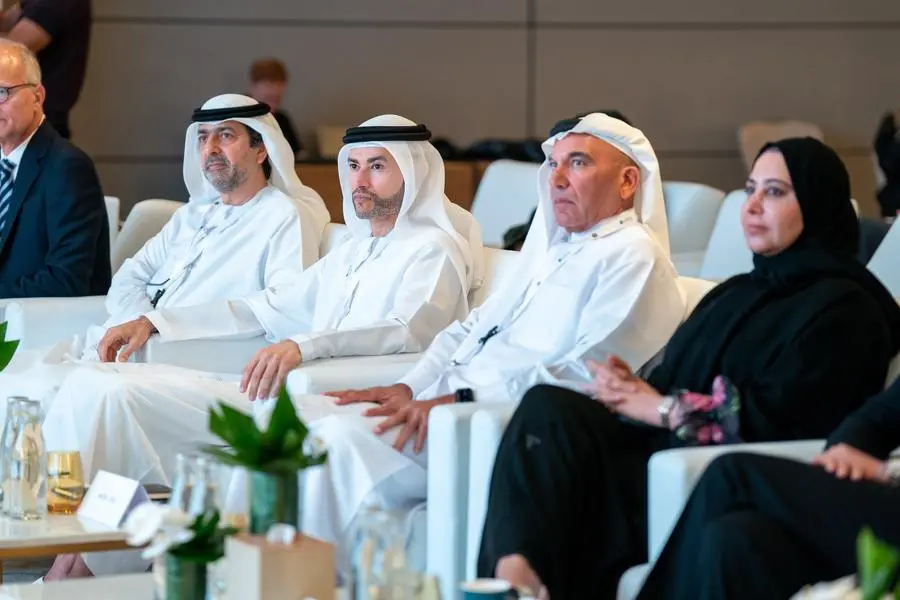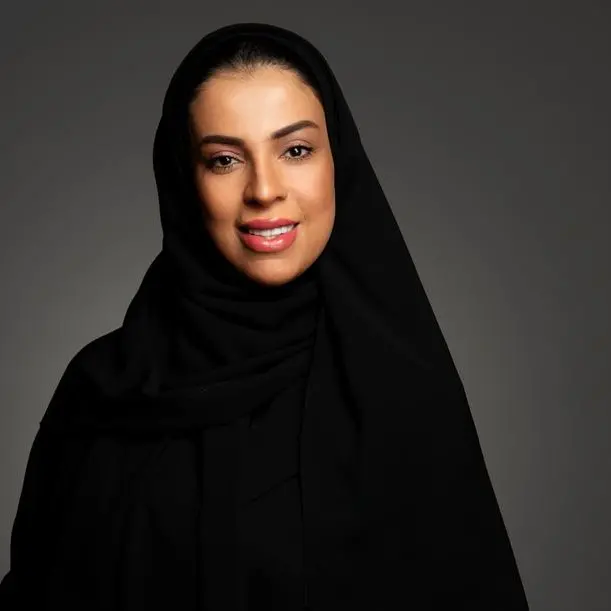PHOTO
Mohammed bin Hadi Al Husseini: We stress the importance of international cooperation to build a global tax system through forward-looking policies and legislation.
Mohammed bin Hadi Al Husseini: We are committed to developing a sustainable tax ecosystem to enhance the UAE’s global competitiveness
Mohammed bin Hadi Al Husseini: We aim to enhance our tax policymaking frameworks, and to consolidate mutual cooperation between the UAE and international organizations
The Forum underlines the UAE’s commitment to building a strong and sustainable tax system through forward-looking policies and legislation.
Dubai-UAE: The Ministry of Finance (MoF), in cooperation with the Organization for Economic Cooperation and Development (OECD), today hosted in Dubai the second forum on Pillar Two or the Global Minimum Tax of Base Erosion and Profit Shifting (BEPS) Project and the Global Anti-Base Erosion Rules (GloBE), as a part of the UAE’s commitment to international standards around taxation.
The forum’s events were opened by His Excellency Mohammed bin Hadi Al Husseini, Minister of State for Financial Affairs, in the presence of His Excellency Younis Haji Al Khouri, Undersecretary of the Ministry of Finance, His Excellency Khalid Ali Al Bustani, Director General of the Federal Tax Authority, His Excellency Mariam Al Amiri, Assistant Undersecretary for the Financial Management Sector, at the Ministry of Finance, and Achim Pross, Deputy Director within the OECD's Centre for Tax Policy and Administration (CTPA), Shabana Begum, Executive Director - Tax Policy Sector, at the Ministry of Finance, and tax officials in countries of the region, in addition to representatives from the government and private sector.
His Excellency Mohamed bin Hadi Al Hussaini, Minister of State for Financial Affairs, said: “The UAE adopts financial and tax policies, legislation and systems that serve its ambitious national development goals, while ensuring the highest levels of transparency and preventing financial and tax malpractices. This commitment is in line with the international standards that are necessary to manage and implement tax systems, and to ensure the country’s leadership in this field.
“We continue to support international efforts to address tax base erosion and profit shifting to contribute to the continuous improvement of the global economic environment. In 2018, the UAE joined the comprehensive framework of the BEPS program, and on June 1, 2023, the UAE introduced federal corporate tax of 9% for the first time in its history."
His Excellency highlighted the importance of the Global Minimum Tax , which provides the means for establishing an internationally coordinated system of taxation that applies a top-up tax on profits when the effective tax rate is below the minimum rate of 15%. He further stressed that the progress achieved so far in this project demonstrates the strength of international cooperation in achieving our common goals of building a strong and sustainable tax eco system through forward looking policies and legislation.
He noted how the forum’s participants will benefit from the OECD insights shared on the latest global anti-base erosion rules, the impact on businesses that are headquartered in the region, as well as the administrative changes that governments in the region may need to take into consideration when implementing the rules.
His Excellency added: “We are committed to developing a sustainable tax ecosystem and accumulating the expertise necessary to enhance the UAE’s global competitiveness as a leading global financial center. We aim to enhance our tax policymaking frameworks, and to consolidate mutual cooperation between the UAE and international organizations, including the OECD. We have cooperated with the OECD since 2006 in a number of seminars to develop and deliver similar fiscal policy seminars across the MENA region, with the participation of regional officials who exchanged their experiences with their UAE and OECD counterparts, on international tax rules and require international tax reforms.”
Panel Discussion
The sessions began with an overview of the technical aspects and latest developments in GloBE rules, roadmap for the key steps towards effective implementation and administration of the rules, and the scope and application on sovereign wealth funds and joint ventures. This was followed by panel discussions on selected issues of “the top-up-tax,” understanding the rules, assessing their impact on local taxpayers and existing rules, and implementing the rules within local legal frameworks, legal tools and legislative approaches
The sessions saw the participation of senior experts and specialists, including: John Peterson, Head of Division at the Center, and Félicie Bonnet, Head of Unit, Chris Sanger (EY): the Global Tax Leader for Government, as well as EY’s Tax Policy leader for the UK, and Noora Saif Al Suwaidi is a Vice President within Mubadala’s Group Taxation department, Sebastian Bock (ICD): Vice President Finance at the Investment Corporation of Dubai (ICD), the principal investment arm of the Government of Dubai, Julie Claire Cunningham (EGA): Global Head of Tax and Risk at Emirates Global Aluminium (“EGA”), Alex Law (Deloitte): GPS and M&A Tax Leader for Deloitte Middle East, and Guy Genssen (ADNOC): Executive Vice President - Group Controller.
The forum included a workshop on Pillar 2 of the OECD-led Base Erosion and Profit Shifting Project and the Global Anti-Base Erosion Rules. Pillar 2 – a global minimum corporate tax rate of 15 percent – that establishes a floor on corporate tax competition,. Specifically, the Global Anti-Base Erosion Rules provide the means for establishing an internationally coordinated system of taxation that applies a top-up tax on profits when the effective tax rate is below the minimum rate.
At the end of the workshop, His Excellency Younis Haji Al Khoori, Undersecretary of the Ministry of Finance, thanked the OECD’s technical experts for the clarity they brought to the issues of implementing and administering a new corporate tax regime, as well as his regional counterparts and colleagues from the UAE for their questions He also thanked the participants from the government and private sectors in the UAE.
He said: “Our cooperation with the OECD today comes within the framework of a renewed memorandum of understanding since 2007, which aims to build a strong tax partnership for the MENA region through the exchange of expertise and experiences, in addition to cooperation in exchanging information for tax purposes".
About the Ministry of Finance
The Ministry of Finance of the United Arab Emirates was established as a sovereign ministry under Federal Decree No. (2) of 1971 to assume responsibility for implementing all financial policies related to economic development in the country, foremost of which is preparing and allocating the federal budget, managing the government’s financial situation, and providing services to the government and business sectors, as well as individuals. His Highness Sheikh Maktoum bin Mohammed bin Rashid Al Maktoum, Deputy Ruler of Dubai, Deputy Prime Minister, serves as Minister of Finance, heading the UAE’s economic and financial interests. His Excellency Mohamed bin Hadi Al Hussaini, Minister of State for Financial Affairs, aims to achieve the Ministry’s strategic objectives.
The Ministry of Finance operates in accordance with a realistic yet ambitious strategic plan to perform its tasks and services in line with international best practices. The Ministry strives to achieve six key strategic goals, namely, enhancing financial planning in the Federal Government and the sustainability of public finances; raising the efficiency and effectiveness of budget execution, while managing the Federal Government’s financial position and cash flows; overseeing the UAE’s financial and economic interests at the international level; boosting the country’s competitiveness in financial and economic fields; providing all administrative services in accordance with the highest standards of quality, efficiency, and transparency; and finally, promoting a culture of innovation in the corporate work environment.
The Ministry includes five main sectors: the government budget and revenue sector, tax legislation sector, government financial management sector, international financial relations sector, and support services sector. It also includes the Federal Debt Management Office, General Budget Committee, Government Financial Policy Coordination Council, and the Financial Restructuring Committee.
For more information, please contact:
Tasnim Hijazi
APCO Worldwide
E: thijazi@apcoworldwide.com




















